
“I alone cannot change the world, but I can cast a stone across the water to create many ripples.”
LDS Quotes on Change

“I alone cannot change the world, but I can cast a stone across the water to create many ripples.”
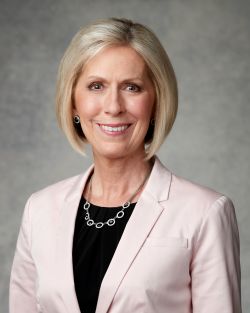
We are always progressing as long as we are striving to follow the Lord.
| An Especially Noble Calling - General Conference 2020
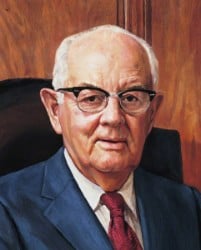
“Perfection is a long, hard journey with many pitfalls. It’s not attainable overnight. Eternal vigilance is the price of victory. Eternal vigilance is required in the subduing of enemies and in becoming the master of our lives. It cannot be accomplished in little spurts and disconnected efforts. There must be constant and valiant, purposeful living – righteous living. Do we have the power to attain this kind of abundance? The psalmist was inspired to write: What is man, that thou art mindful of him? and the son of man, that thou visitest him? For thou hast made him a little lower than the angels, and hast crowned him with glory and honour. Thou madest him to have dominion over the works of thy hands; thou hast put all things under his feet.” (Ps. 8:4–6.) There are those today who say that man is the result of his environment and cannot rise above it. Those who justify mediocrity, failure, immorality of all kinds, and even weakness and criminality are certainly misguided. Surely the environmental conditions found in childhood and youth are an influence of power. But the fact remains that every normal soul has its free agency and the power to row against the current and to lift itself to new planes of activity and thought and development. Man can transform himself. Man must transform himself.”
| “The Abundant Life,” Ensign, October 1985, p. 5
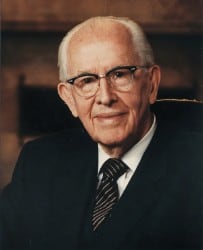
“Our enmity toward God takes on many labels, such as rebellion, hard-heartedness, stiff-neckedness, unrepentant, puffed up, easily offended, and sign seekers. The proud wish God would agree with them. They aren’t interested in changing their opinions to agree with God’s.”
| “Beware of Pride,” Ensign, May 1989
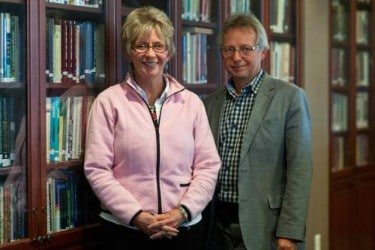
“The vocabulary of sin and guilt and damnation has too often overwhelmed the restored gospel’s message of absolute love and powerfully grounded hopefulness. As Elder Neal A. Maxwell said, summarizing the almost universal misapprehension of overanxious Saints among us, we must learn to ‘distinguish more clearly between divine discontent and the devil’s dissonance, between dissatisfaction with self and disdain for self. We need the first and must shun the second. When conscience calls to us from the next ridge,’ he wrote, her purpose is to beckon not to scold.
“Rather than continuing to frame our lives in terms of deficiency and inadequacy, we would benefit from the perspective of Irenaeus, who emphasized the forward-looking process in which we should be engaged: becoming ‘perfected after the image and likeness of God.'”
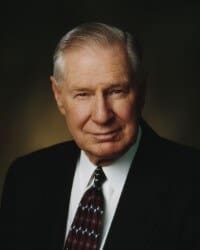
“Holiness is the strength of the soul. It comes by faith and through obedience to God’s laws and ordinances. God then purifies the heart by faith, and the heart becomes purged from that which is profane and unworthy. When holiness is achieved by conforming to God’s will, one knows intuitively that which is wrong and that which is right before the Lord. Holiness speaks when there is silence, encouraging that which is good or reproving that which is wrong.”
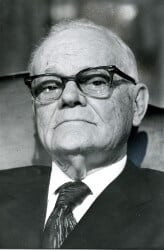
“Notwithstanding the fact that through its misuse, political, economic, and personal liberty are lost, free agency will always endure because it is an eternal principle. However, the free agency possessed by any one person is increased or diminished by the use to which he puts it. Every wrong decision one makes restricts the area in which he can thereafter exercise his agency. The further one goes in the making of wrong decisions in the exercise of free agency, the more difficult it is for him to recover the lost ground. One can, by persisting long enough, reach the point of no return. He then becomes an abject slave. By the exercise of his free agency, he has decreased the area in which he can act, almost to the vanishing point.”
| “The Perfect Law of Liberty,” Ensign, Nov. 1981, p. 45
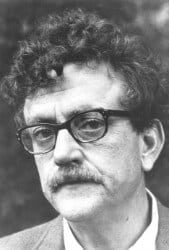
“We are what we pretend to be, so we must be careful about what we pretend to be.”
| Mother Night
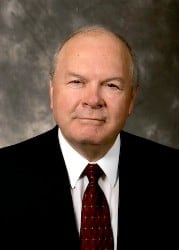
“Charity is not an act but a way of life, a condition of the heart.”
| BYU Education Week 2005
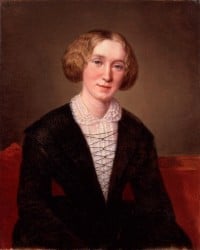
“The strongest principle of growth lies in the human choice.”